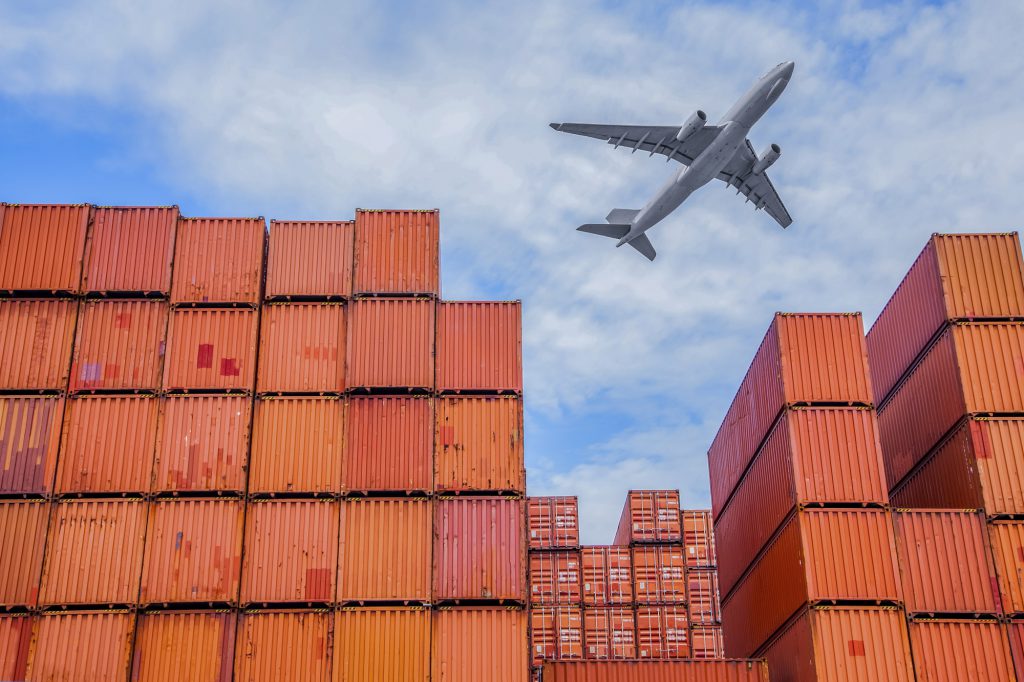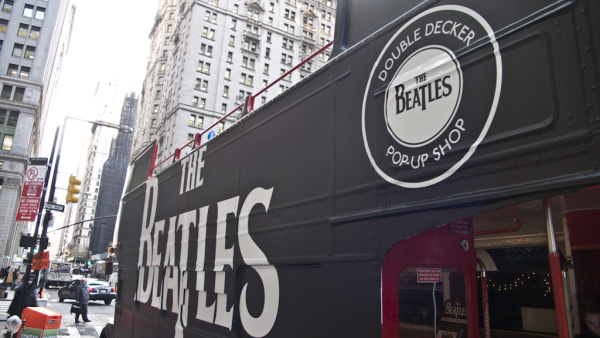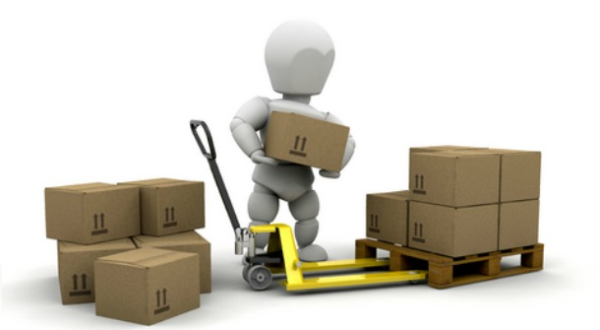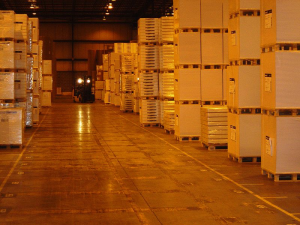Category: Logistics
What You Need To Know About Logistics Management Software
There can be so many choices of software when it comes to logistics management that it’s hard to decide which one is best. What’s perfect for you may not be ideal for another company, and vice versa. Which software you choose could have a drastic impact on your business, so you must choose wisely.
Let’s take a look at a little bit of information as it applies to logistics management software and how to make that wise choice.
Success in This Competitive World
Internal efficiency is a huge factor in the success of today’s enterprise. Of course, the delight of its customers is also essential. Seamless logistics and a well-oiled supply chain are important if a company is going to fulfill both of those goals. Without the right logistics management software, that can be difficult.
The Basics
What should logistics management software do? Basic functions include warehouse operations that enhance efficiency and productivity, improve customer satisfaction, and save money. Everything from inventory control to supply chain planning is covered by a comprehensive suite. Additional coverage will include transportation routine streamlining, slotting and shipping, packing, and other warehouse functions. A good software program enforces greater control over operations, improves transparency, and co-opts logistics tracking software.
Seamless Integration
There are stand-alone suites and also comprehensive suites. The latter covers all needed activities. If a comprehensive suite is not utilized, you must somehow be able to experience a seamless integration between the various suites classified as stand-alone.
Capabilities held by a top rated logistics management software would include the following:
- The capability to tap into other partners and all desired 3PL.
- Draw critical information.
- In the form of actionable information, make presentations to stakeholders.
Above and Beyond
Warehouse operations management is the core of logistics software. Helping maintain supply chain control and offering visibility is the job of logistics tracking software. But, to aid tactical planning, the offer of visibility must be surpassed with superb logistics tracking software.
What does success depend on?
- Easy to use dashboards delivered to the right stakeholders (preferably, through easy to use mobile apps that facilitate anytime, anywhere access)
- Integrating all critical solutions
- A well-integrated logistics software solution
As important as visibility is, however, a “what to do next insight” must be used in combination with visibility. Among today’s successful logistics players, embedded analytics is in high demand.
Advanced analytics tools will be needed as data and business becomes more complex.
Don’t Rock the Boat With Your Software
A good logistics software system will not disrupt operations already in existence. Review functionality features before choosing your software. Consider the following for each feature:
- What problems or issues will it solve?
- What are the benefits of bringing it to the table?
- Why is it needed?
- Additionally, be able to explain how this new software will combine with your current, existing logistics operations.
How to Solve All Your Logistics Problems in One Easy Step
With all of that said, there’s a much easier way to make sure that all of your logistics are taking care of. The knowledgeable representatives of STC Logistics can help with everything from crating and packing to warehousing and fulfillment – and everything in between.
Since 1992, we have been the go-to logistics company for numerous businesses. Our credentials include SmartWay, IATA, Globallink, CNS (an IATA company), the Transportation Security Administration, and more.
Contact us today if you have any questions or would like to find out how partnering with STC Logistics can be beneficial for you and your business.
What You Need To Know About NMFC Codes
In the logistics industry, topics about technology and chain efficiency are widely discussed. Oftentimes, certain technical lingo can be confusing for people who are not seasoned industry specialists or thought leaders. In this post, we are going to explain what NMFC codes are why they are important to companies in the freight and logistics industry.
What are NMFC Codes?
Regulators within the logistics industry, referred to as NMFTA (National Freight Traffic Association), created NMFC (National Motor Freight Classification) codes when they realized there was a need for more effective standardization. This body created a classification system for every type of freight in an effort to standardize freight pricing and establish fair measures.
The system has 18 different freight classes and it is catalogued with NMFC tariffs. Numbers between 50 and 500 are used to define the 18 freight classes, and are often used by carriers and shippers to set shipping rates.
Four primary factors that help to define a freight class include:
- Stowability: This refers to how easily a product’s dimensions can easily fit into the carrying container or vessel. If a product is extremely large, hazardous, or extra heavy, it can be difficult to stow on a trailer, thus raising costs. The higher the stowability, the lower the classification of the freight.
- Liability: Products that are fragile, refrigerated, or perishable pose a greater liability and so they are classified in a higher class.
- Ease of handling: When freight is easy to handle, it is classified in a lower class. If freight is difficult to handle, it is placed in a higher class.
- Density: The higher the amount of space a shipment takes up on a trailer relative to its weight, the higher the class it is placed in.
Carriers and shippers use these factors to determine the cost of moving freight. If the freight cannot be accurately classified, it may lead to dangerous situations and inefficiencies.
How to Find the Correct NMFC Number
In order to find the NMFC number to your specific shipment, you need to consult with a freight company. The freight company will help you classify the shipment, which will then help to determine the shipping costs. It is important to deal with transport providers who use provisions of the NMFC because they are the only ones allowed to participate in the classification system. The disadvantage of using freight companies, which do not include tariff provisions of the NMFC in contracts, is that they can set rates as they see fit.
The Importance of the NMFC Number
Before shipping your packages, always ensure that you find out the NMFC number that applies to your intrastate or foreign shipment. This number will ensure that you are fairly charged for the shipments. If you don’t have the NMFC number, you will not have a baseline to determine if you are being overcharged for shipping.
How to Avoid Last-Minute Retail Logistics Mishaps

A misstep with your retail logistics can cause dramatic profit losses even when you see it coming from a mile away–when you’re blindsided by last-minute mishap, those losses become nearly inevitable. With that hard fact in mind, it behooves a retailer content to protect its profitability by working out flexible, reliable, trustworthy logistics solutions. For most businesses, there’s one simple way to manage this: the services of a reputable Third-Party Logistics (3PL) provider. Wondering how a 3PL can empower retail logistics, improve bottom lines, and insulate companies from last-minute mishaps? Read on.
What a 3PL Offers
At its core, what a 3PL offers is the experience and efficacy of an advanced in-house logistics team without the associated costs of hiring, training, outfitting, and maintaining such a team full time. By leveraging that level of experience and familiarity with retail logistics on a part-time basis, you can achieve much greater efficiency in every aspect of your supply chain—which means big savings and big profits, in the long term.
And unlike an in-house team, a 3PL has zero issues with scalability, myriad tools which may only see use in unusual circumstances, and many other advantages of adaptability which a savvy retailer can leverage to their benefit. Few retail logistics solutions offer as much.
Avoiding Retail Logistics Mishaps
By working together with a 3PL to develop flexible retail logistics strategies, you can minimize or even eliminate the opportunity for most mishaps to arise. When regulations change, or a particular shipping route becomes less effective and thus less profitable, a 3PL will be far more likely to spot that change and adapt accordingly—saving you from wasteful shipping, delays, and other retail logistics nightmares.
But even the greatest plan and greatest analysis can’t offer 100% coverage from all mistakes and unexpected occurrences. That’s where the other great strength of a 3PL comes to the rescue: the nature of a 3PL means a much greater agility in developing workaround solutions and last-minute logistical fixes than anything an in-house retail logistics team working with mainstream shipping services could provide.
Turn Logistical Traps into Opportunities
The savviest businesses will take their logistics one step further than safe, by turning the same events which become mishaps for their competitors into opportunities. By being the first business in your market to adapt to changing logistical situations, and thus maintaining lower prices or better offers than those competitors which took the shift’s full brunt, you can turn yesterday’s pitfalls into today’s grand opportunities. All it takes is flexibility and a willingness to act quickly to capitalize on such chances.
Final Thoughts
If you take the reliability of your logistics at all seriously, investing in the services of a 3PL provider may be the best option for your business—a cost-effective way to maximize the efficiency of your supply chains, avoid mishaps as they arise, and adapt to changes in the way you receive your retail goods. STC Logistics has several years of experience working in the retail procurement industry, providing reliable logistics solutions for new store openings, POP display campaigns, rollouts and distributions, and much more. Click below to learn more about our retail logistics services!
Choosing a Logistics Provider for Your Pop-Up Store
 Pop-up stores are a fairly new concept used by retailers.These trendy stores pop-up for a short period of time and close once their stock is sold out. For example, they can open their doors over a seasonal period of time, like Halloween costume stores or other holiday shops. They stock their stores with a large selection of goods and use effective brand marketing to sell out their stock over the course of the season. Then, the store can close and open elsewhere with new and different stock.
Pop-up stores are a fairly new concept used by retailers.These trendy stores pop-up for a short period of time and close once their stock is sold out. For example, they can open their doors over a seasonal period of time, like Halloween costume stores or other holiday shops. They stock their stores with a large selection of goods and use effective brand marketing to sell out their stock over the course of the season. Then, the store can close and open elsewhere with new and different stock.
Pop-up shops serve a niche market, so they are typically open for about 3-6 months; sometimes for a shorter or longer period of time. Hiring managers must plan carefully to successfully set up the store, hire adequate staff, sell out the stock and close down the store in a timely fashion while still making a profit.
So what makes these specialty shops profitable? The key to pop-up store success is making sure store fixtures, displays and stock are all set up properly in time for opening. For this to happen, retailers must work with a reliable logistics company. A store owner that is let down with late or missing stock delivery can end up seeing his or her pop-up store open without sufficient stock to sell.
Late stock arrival means that stock is left over at the end of the season, defeating the objective of such a store. While considering many other details, the owner and supporting staff cannot spend countless hours tracking stock and worrying about lost shipments. When launching a pop-up store and choosing a reliable logistics company, retailers need to consider the following:
• Does the logistics company specialize in retail procurement?
• Does the company possess the infrastructure to deliver shipments of all sizes?
• If needed, can the company offer same-day or white glove service?
• Can the company offer free nationwide warehousing and storage facilities?
• Has the company received positive feedback from present or former customers?
• Do they offer high technology cargo tracking capabilities for complete visibility of freight?
• Do they care about the customer enough to ensure their success?
• Are their trucks equipped with lift gates?
• Does the company offer cross-docking services?
Imagine that you have invested money in opening a pop-up store, only to discover your POP advertising materials have been damaged or delayed. Retail procurement professionals must work with a trusted logistics company to ensure that all materials are delivered to one store or hundreds, on time—every time.
STC Logistics specializes in logistics solutions for new retail store openings. We have incorporated numerous checkpoints into our freight monitoring services to ensure flawless and timely delivery of goods. With our 3PL technology, we are able to efficiently track, trace and control each shipment and can serve as a one-stop solution for retailers.
Choosing a reliable retail procurement logistics professional will ensure a smooth new-store opening. To learn more about our services, click here or contact us today.
Photo credit: Wikipedia
Retail Logistics: Why Timing is Everything
Timing is everything in the retail logistics and transportation industry. Many retail stores struggle to break even in down months and make the entirety of their annual profits in short, frenetic periods each year. Having the right products on the shelves when they are most valuable can mean life or death for any retailer, whether it’s the summer boom in lawn equipment and air conditioners at a hardware shop or having the newest titles on the shelves at a gaming outlet. Ordering too far ahead of schedule can mean as much of a loss as ordering too late—even in periods of low sales, wasted shelves equal lost profits.`
Logistics and transportation must be carefully handled at all stages for a store to achieve maximum profits. On the store’s end, this means careful pre-planning, beginning at least a few months in advance of hectic sales seasons. Important steps in retail planning include:
- Researching products
- Gauging potential sales
- Developing sales and advertising strategies
- Contacting suppliers
- Completing negotiations
- Arranging shipping
- Receiving products and advertising materials
- Shelving products and preparing displays
Several of these steps can be quite difficult without retail logistics and transportation support, but missing important products, over- or under-estimating interest in products or failing to complete negotiations and receive necessary items in a timely manner can all be devastating. Forgetting to order point-of-purchase displays for a major product until the week before the product goes on sale, for example, might make the difference between clear shelves and a full stockroom.
Holidays are of particular concern for any retailer, because as the most vital season for financial success they are also the most likely place for problems to crop up in your logistics and transportation. Perfect preparations store-side can fall apart completely if the chaos of the season overwhelms suppliers, transporters or other parts of your logistics chain. Major logistics and transportation firms fail to deliver express packages on time roughly 10% of the time and lose between 0.5% and 1% of packages every year. Those numbers become even worse during intense seasons.
Having specialists manage your logistics and transportation chain can greatly reduce the odds of delayed order completions and missing shipments. STC Logistics maintains a better than 99% on-time delivery rate to customers in locations across the nation. We offer shipping by air, sea, rail and road and can handle complex large-scale distribution and small daily shipments with equal ease. By working with over 700 logistics and transportation affiliates in and around transportation hubs across the United States, STC Logistics can manage time-sensitive shipments with high precision and reliability. To learn more about our logistics services, click the button below or contact us today for your rate quote!
The Impact of Mobile Technologies on Logistics Solutions
 There are many things to consider when hiring a third party logistics company today. While the basics involve utilizing air, land, or sea transportation to move goods from one point to another, there are many intricacies that are added to the process in order to increase efficiency—both for the customer and the logistics company itself. With shifting trends and the notion of new logistics technologies being ever present, there are many concepts that are improving the way freight gets moved.
There are many things to consider when hiring a third party logistics company today. While the basics involve utilizing air, land, or sea transportation to move goods from one point to another, there are many intricacies that are added to the process in order to increase efficiency—both for the customer and the logistics company itself. With shifting trends and the notion of new logistics technologies being ever present, there are many concepts that are improving the way freight gets moved.
Overall, the most revolutionary changes that are happening in logistics technologies today are widely due to advances in mobile logistics technologies. In the past, there were only primitive ruggedized devices that were specifically put into use for supply chain environments. Now, the lines between consumer and commercial grade equipment are becoming blurred because of new logistics technologies. This provides customers, as well as professionals, with crucial solutions to improve processes in every step of the supply chain.
Technology and Logistics in the Warehouse
The utilization of mobile logistics technologies in the warehouse has completely changed the way that companies think about setting up, as well as sorting and segregating inventory. With a single smart phone, warehouse employees are now able to:
- View inventory counts remotely
- Scan inventory both short and long range
- Use voice activated commands to conduct operations hands free
- Send information through the cloud for instant results
- Track and trace transportation itineraries and transit times
Another warehouse trend that cloud-based logistics technologies have set is the use of complete mobile solutions. Because logistics technologies have spider-webbed into so many devices, warehouse teams can now use smart phones and tablets in combination with mobile printers. These scanning devices enable the warehouse workers to reduce the need to move back and forth to different stations in the warehouse. This eliminates issues with sorting, segregating, picking and packing, setting up RFID solutions, scanning barcodes and printing.
For the Customer
Mobile logistics technologies have made the customer end of logistics more productive than ever before. With app development at an all time high, the customer now has more information at their fingertips than ever before. These logistics technologies allow the customer to forgo contacting 3PLs directly in regards to queries such as:
- Inventory quantities
- Price quotes
- Real-time transit status updates
- Delivery times
- Confirmation of POD
Tracking has always been a huge issue for customers until recently because there was little information available without making hard inquiries by phone. But now, trucks, trains, ships, and planes can be outfitted with GPS trackers that the customer can dial into from their smart phone to see exactly where their freight is. This allows them to not only satisfy their curiosity, but plan accordingly based on suggested arrival times.
For the Driver
Utilizing the same type of logistics technologies, truck drivers can now perform many functions with far greater efficiency. Smart phones allow drivers to accurately capture customer signatures upon delivery, track their hours, and even examine statistics about their driving performance. GPS systems can also provide real time data about traffic situations so that they know about areas that should be avoided to achieve shorter transit times.
The Wave of the Future
The smart phone based logistics technologies available today are completely changing the way that everyone thinks about logistics. It is even paving the way for other advances in the future such as 3D printing and greater use of green solutions. For now, 3PLs and customers alike can enjoy the way that mobile logistics technologies has helped to improve the process overall.
STC Logistics utilizes the latest in technology for all logistics solutions. Contact us today to get a quote for your next shipment!
Photo credit: manufacturingdigital.com
The Importance of Reliable Pharmaceutical Logistics Practices
 While logistics is a most crucial matter to companies in any industry, getting pharmaceutical logistics solutions right can be a matter of life and death, depending on the situation. Hospitals, primary care physicians, urgent care facilities, pharmacies, and a number of other establishments need to have medicines readily available in order to care for their patients; sometimes for life threatening situations. Fortunately, the top pharmaceutical logistics companies have specific services tailored to the unique demands of this industry.
While logistics is a most crucial matter to companies in any industry, getting pharmaceutical logistics solutions right can be a matter of life and death, depending on the situation. Hospitals, primary care physicians, urgent care facilities, pharmacies, and a number of other establishments need to have medicines readily available in order to care for their patients; sometimes for life threatening situations. Fortunately, the top pharmaceutical logistics companies have specific services tailored to the unique demands of this industry.
Shipping Checks and Balances:
Whether pharmaceutical logistics solutions involve goods that are being shipped by air, land or sea, the most reliable companies will take measures to ensure that cargo arrives promptly and in one piece by performing the following procedures:
- Creating temperature controlled environments
- Utilizing the correct padding, boxing and stacking methods to prevent jostling or breakage
- Taking extra security measures to ensure the correct parties are handling and receiving the goods from when the cargo is picked up until it is delivered
- Offering several transport methods to offer rush delivery if necessary
By offering such a broad range of shipping services, the most elite pharmaceutical logistics companies can help customers with even the most specific needs. This allows their patients to receive the medicine they will ultimately need for recovery. Even under strained circumstances, there are always pharmaceutical logistics choices that top providers can decide on to ease stress of those who need the product the most.
Management Solutions:
Companies that offer all of the most reliable and trusted pharmaceutical logistics solutions are also experts at knowing how to manage even the most complicated of orders. These notions go far beyond getting the timing, packing and shipping methods correct. Customers in the pharmaceutical industry have specific demands that need to be met in a timely manner, and pharmaceutical logistics companies can respond successfully by offering the following:
- Specialized freight management solutions to prioritize each shipment based on customer needs
- Tracking with technology that allows up to the minute real-time reporting so that customers always know where their shipment is
- Vast and far reaching distribution services to ship any freight just about anywhere in a specific time frame
- White glove services that compliment courier, fulfillment, delivery and customer service solutions so that both the merchandise and customer are treated with respect
Pharmaceutical logistics companies are aware that there are not just lives, but a tremendous amount of money at stake with each shipment. One false move can cause a shipment of medicine to break, expire or end up lost and can result in a loss of tens or hundreds of thousands or even millions of dollars. This is why the nature of the pharmaceutical logistics solutions that specialized companies offer is so vast.
The Importance of Building Trust with Your Logistics Provider:
When handling incredibly sensitive materials, there is nothing more important than facilitating an air of truth between customer and pharmaceutical logistics providers. While the act of trust may begin with promises, it always ends in the deeds of both parties involved in each transaction. This is why top pharmaceutical logistics companies go above and beyond the call of duty to ensure long and lasting relationships. Successful logistics companies dealing with the pharmaceutical industry pride themselves on building a series of connections with lifelong customers who trust many of the lives of their patients to the overall performance of the logistics company itself.
STC Logistics strives to continue to be a trusted partner for pharmaceutical logistics solutions, including air shipping and ground shipping. Contact us today to learn about all of the logistics solutions that we can provide for your pharmaceutical shipping needs.
The Impact of White Glove Service for Logistics Solutions
 There are many different types of freight being shipped every day across land, air, and sea channels. Some items tend to be far more fragile than others,thus require specialized attention in order to prevent an imminent disaster. The most ideal logistics solutions needed for cargo of the most delicate nature will come from carriers who embrace the concepts behind white glove service and understand its overall importance. As a result of such diligence, any business can feel secure knowing that their logistics affiliates are willing to take the time to carefully secure, handle and transport their cargo based on the unique physical attributes each shipment possesses, as well as the price tag of the items themselves and the time-sensitivity they require.
There are many different types of freight being shipped every day across land, air, and sea channels. Some items tend to be far more fragile than others,thus require specialized attention in order to prevent an imminent disaster. The most ideal logistics solutions needed for cargo of the most delicate nature will come from carriers who embrace the concepts behind white glove service and understand its overall importance. As a result of such diligence, any business can feel secure knowing that their logistics affiliates are willing to take the time to carefully secure, handle and transport their cargo based on the unique physical attributes each shipment possesses, as well as the price tag of the items themselves and the time-sensitivity they require.
Countering Potential Shipping Issues:
Just as different types of freight require different levels of hands on attention, each unique shipping method offers its own challenges regarding the way that freight must be handled. Fortunately, the use of white glove service presents a measurable counter for any potential threat that may or may not occur during all steps of the shipping process. Direct line-haul service can be used to minimize transfers, while special attention can be given to pick up and delivery methods. Transit times are reduced and your freight is tracked consistently to ensure on-time deliveries of your most time-sensitive cargo.
By Land:
When moving shipments by truck, some of the preventable dangers that can be experienced on the road include:
- Jostling of freight that could easily cause it to crack, break, or otherwise be damaged – remedied by packaging and securing the freight with the proper equipment
- The ever present threat of getting into an accident while on road – accidents occur, but timeliness in recovering from them is determinant in completing the job.
- Problems that could develop based on the temperature of the cab depending on the type of freight that is being shipped – temperature controlled equipment and temp tabs can regulate and monitor these issues
- Theft or vandalism that could easily happen while a truck is parked at any location – inventory tracking technology, secure cross-docking facilities, locked trucks and video monitored loading docks are some precautions taken to minimize theft
By Sea:
Problems that could be encountered by sea are somewhat similar and include:
- Waves from bad weather conditions that could easily cause the freight to be bounced around – contracting the correct size equipment and securing cargo is important in preventing slippage
- Long travel times that could cause time sensitive freight to expire – by knowing anticipated transit times and the nature of the product, your logistics company can lead you to choose the best service based on your type of freight.
- Temperature issues, especially if freight is being kept below deck – remedied just as any temperature sensitive situation
By Air:
The issues for freight moving by air are less serious, even though this is considered to be the safest means of transport:
- Jostling that could take place during take-off and landing – packaging practices are crucial
- Turbulence in the air – D-containers may be implemented to prevent moving inside the cargo space
The Solution:
Any business will find that logistics companies who pride themselves in offering white glove service can effectively combat each and every one of these issues. In doing so, such companies will assess if all items are neatly packed and secured with proper materials, all boxes are sealed correctly, delicate items are wrapped in the proper way, everything is loaded in the neatest order possible, and the correct type of shipping method used for particular types of freight. Packaging assessments should be made and solutions offered to your shippers so they can reinforce products prior to shipping. Without this level of service, there are too many potential disasters that could befall the freight in question which ultimately means lost time, lost money and unhappy customers.
By employing proper white glove service, logistics companies like STC Logistics are ensuring that those they work with will never have to fret in regards to even the most expensive or delicate types of freight. Because the top logistics outfits take their time to develop a unique solution, born in practices of white glove service and then custom tailor it for each and every item, it makes their service standards worth looking into. Because freight must ultimately be shipped in one manner or another, choosing the safest and most secure methods simply makes sense, which of course is precisely the aim of white glove service overall. Any company bold enough to embrace white glove service standards will be rewarded with personalized service, fewer pieces of damaged freight, faster shipping times, and happier customers overall.
To learn more about how you can safety ship the most delicate and high importance items from a trusted logistics provider, please click here.
New 3PL Technology Services Establish Flexibility and Reliability
 The biggest challenge with any 3PL provider is the ability to report up-to-date feedback on the status of a clients’ cargo. This challenge requires a strong element of control when dealing with time sensitive processes. It is crucial that a successful logistics plan is in place for any manufacturing or distribution establishment. According to a survey by Ernst and Young, more than 5% of all sales go to transportation. It is obvious that most organizations and businesses desire to have their customers served in the most efficient manner. This is where the latest technology practices come in to establish flexibility and reliability in logistics.
The biggest challenge with any 3PL provider is the ability to report up-to-date feedback on the status of a clients’ cargo. This challenge requires a strong element of control when dealing with time sensitive processes. It is crucial that a successful logistics plan is in place for any manufacturing or distribution establishment. According to a survey by Ernst and Young, more than 5% of all sales go to transportation. It is obvious that most organizations and businesses desire to have their customers served in the most efficient manner. This is where the latest technology practices come in to establish flexibility and reliability in logistics.
3PL Technology Removes Complexity
In order to instill the right confidence in a transportation transaction, 3PL providers integrate new technology for capturing and analyzing data points along the supply chain. These data points include updates on preparation and planning, cargo dimensions, customer-specific instructions, packaging/handling, restrictions and destinations. All this information needs to be coordinated in order to track, trace and control the movement of cargo within a specified time frame. Without using new technology, this can be challenging to manage, especially since each cargo requirement is unique.
3PL Technology Integrates with Customer Processes
The value of the new technology that 3PL’s provide is very useful to the customer when they can relate it to their priorities. Many customers desire having the option to check up on cargo status as well as being able to specify times and dates for collection, storage and delivery. Most cargo deliveries are quite sensitive to the degree of where specific ambient conditions are specified and bound within a specific delivery time. Advanced 3PL companies present an integrated way of interacting with a system. Many allow their customers to interact with their orders in a real-time fashion which offers control over the period, the condition and the handling requirements for their cargo. This integrated approach presents the 3PL company as a reliable service that is respondent to a customer’s specific needs on demand. In turn this allows the 3PL to understand the dynamic needs of each client to ensure quality, service satisfaction and efficiency.
Value Added Features
It is reassuring when customers know the status of the cargo. In terms of location, expected time of arrival, status and condition, it is crucial for business to run smoothly. This information gives clients a confidence of service reliability since the 3PL company is committing to the customer service process. From the 3PL perspective, things might look a little hectic in meeting this requirement, but the best companies have adopted the following accurate practices:
- Monitoring the cargo through time-stamped status updates which reflect the condition and location of the cargo. Tracking information is relayed directly to the customer portal where it is reflected as real-time information.
- Tracing the whereabouts of cargo in the event that the delivery instructions change or there are unavoidable circumstances that would prevent timely delivery of the cargo. This is typically monitored internally and serves as a tool to pin-point cargo.
- Implementing a logistics plan allows for management and structure of the cargo. This ensures that odd-sized or delicate goods get specialized attention, that handling precaution has been made and that the cargo is moving by means of adequate transportation services.
Determining and Managing Transportation Methods
Premier 3PL companies use many methods of transportation; whether by sea, rail, road or air, their clients’ products, priorities and constraints are central to accomplishing a common goal. These methods allow 3PL’s the flexibility to respond quickly to time or budget critical orders. In order to serve all customers with integrated equal maintenance, accessibility to new technology practices is essential in allowing customers to plan effectively. The use of advanced technology allows all transportation schedules and parameters to be joined into one common operating system.
STC Logistics utilizes and offers to their clients, the most up-to-date technology programs and practices. Learn more about our shipping process by clicking here.
Retail Display Environments: The Role Logistics Play
 Achieving success in retail display environments depends on various factors. Every retailer must have an exceptional logistics system in order to offer the best quality service to their customers. Logistics play a major role in sourcing and inventory management, among other key activities in the overall supply chain. A retailer should provide customers with products they desire at the correct quantities, the correct time, and the correct place. In order for a retailer to successfully carry out these activities they require a logistics provider who demonstrates sufficient experience and one that is staffed with experts who can solve any complex transportation issues as they arise. Along with offering the best competitive prices, maintaining standards of service are important when implementing the correct mode of transportation and are a key focus of a knowledgeable logistics team. Here are some of the reasons why logistics are important to every retail display environment.
Achieving success in retail display environments depends on various factors. Every retailer must have an exceptional logistics system in order to offer the best quality service to their customers. Logistics play a major role in sourcing and inventory management, among other key activities in the overall supply chain. A retailer should provide customers with products they desire at the correct quantities, the correct time, and the correct place. In order for a retailer to successfully carry out these activities they require a logistics provider who demonstrates sufficient experience and one that is staffed with experts who can solve any complex transportation issues as they arise. Along with offering the best competitive prices, maintaining standards of service are important when implementing the correct mode of transportation and are a key focus of a knowledgeable logistics team. Here are some of the reasons why logistics are important to every retail display environment.
Logistics allows the retailer to concentrate on other core activities
For a retail business to produce successful results, the company must be able to spend a substantial amount of time focusing on the management of their company. Too much time spent on dealing with their logistics efforts denies their staff the ample time they need to concentrate on other key activities; such as marketing, administration, customer care or inventory management. It is important that a retailer chooses a reliable logistics provider that is experienced and cohesive. This way, it is possible for management to give attention to other activities that are core to the retail environment.
Logistics increase retail efficiency
The most critical requirement of every retailer is having the ability to offer products at the right place and at the right time. With a good logistics provider, an eye-catching flow of goods will be displayed in and out of the store. Having a reliable relationship with your chosen 3PL will allow for last minute changes and a working relationship that allows you to be confident in your transportation decisions. This means that your company rarely suffers from unexpected damages or delays that can cause negative impact on both the business and the customers. However, it is important that you implement good store management techniques to avoid losses associated with poor stock management. Make sure that the various stock levels are communicated to your supply at the right times. If last minute rush orders are necessary, have a logistics team behind you to accommodate those requests. This will not only strengthen your total supply chain, but may go a long way in helping to avoid losing potential customers.
Transport expenses are passed to a third party
There are many overhead expenses that are included in the transportation of products. In addition to clearing and forwarding in the case of imported products being moved, you may have extra expenses that you haven’t budgeted for. This could become very expensive for a retail business. Teaming up with a dependable logistics provider who offers insight and risk assessment will allow you to minimize these expenses as well as other transport risks. Pre-planning is key in maintaining your budgets.
Goods in transit are stored goods
When goods are being transported from one location to the other, there are considered to be stored goods. A good logistics provider will allow your company to avoid extra storage costs until the goods arrive safely at the retailer of choice. Make certain to negotiate storage fees upfront and get to know you 3PL’s policies on timeframes.
Using a trustworthy logistics provider is influential on the amount of success resonated in retail display environments. Your 3PL should be aware that the primary role of the retailer is to offer products to customers on-time and undamaged and at reasonable prices. A reliable logistics provider like STC Logistics can help customers have more time to focus on proper retail management of their company by managing the behind-the-scenes transportation effort that goes into a successful retail campaign. In turn this will help increase the amount of retail efficiency within the company. STC Logistics can also assist in pre-planning your shipping schedules and accommodating budgets, while maintaining the highest level of service. They will work to cover extra storage expenses that typically aren’t covered by other logistics providers and give you a clear picture, upfront, of what costs may be incurred through different modes of transportation. Learn more about our adding STC to your team at: https://shipstc.com/domestic-transportation.html















